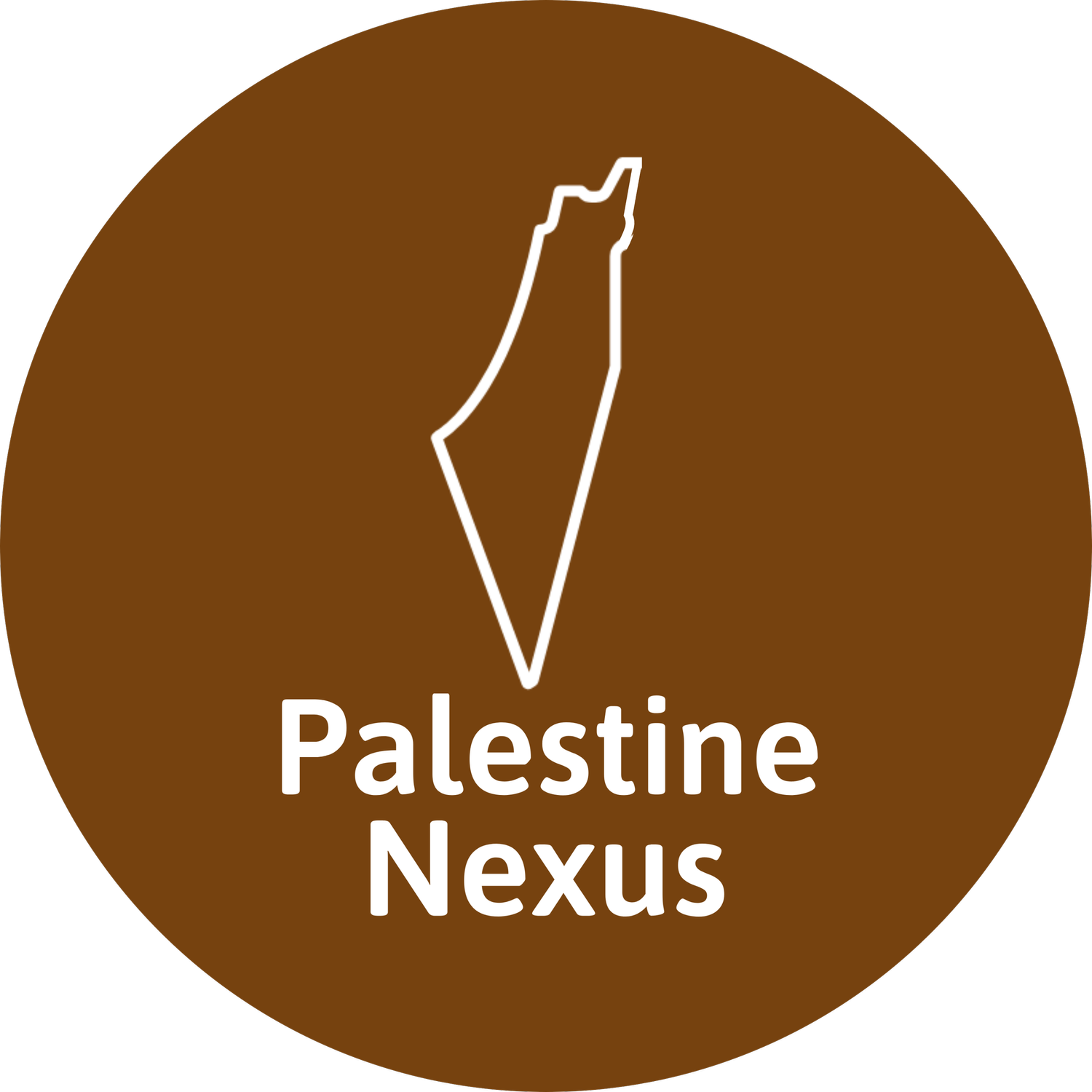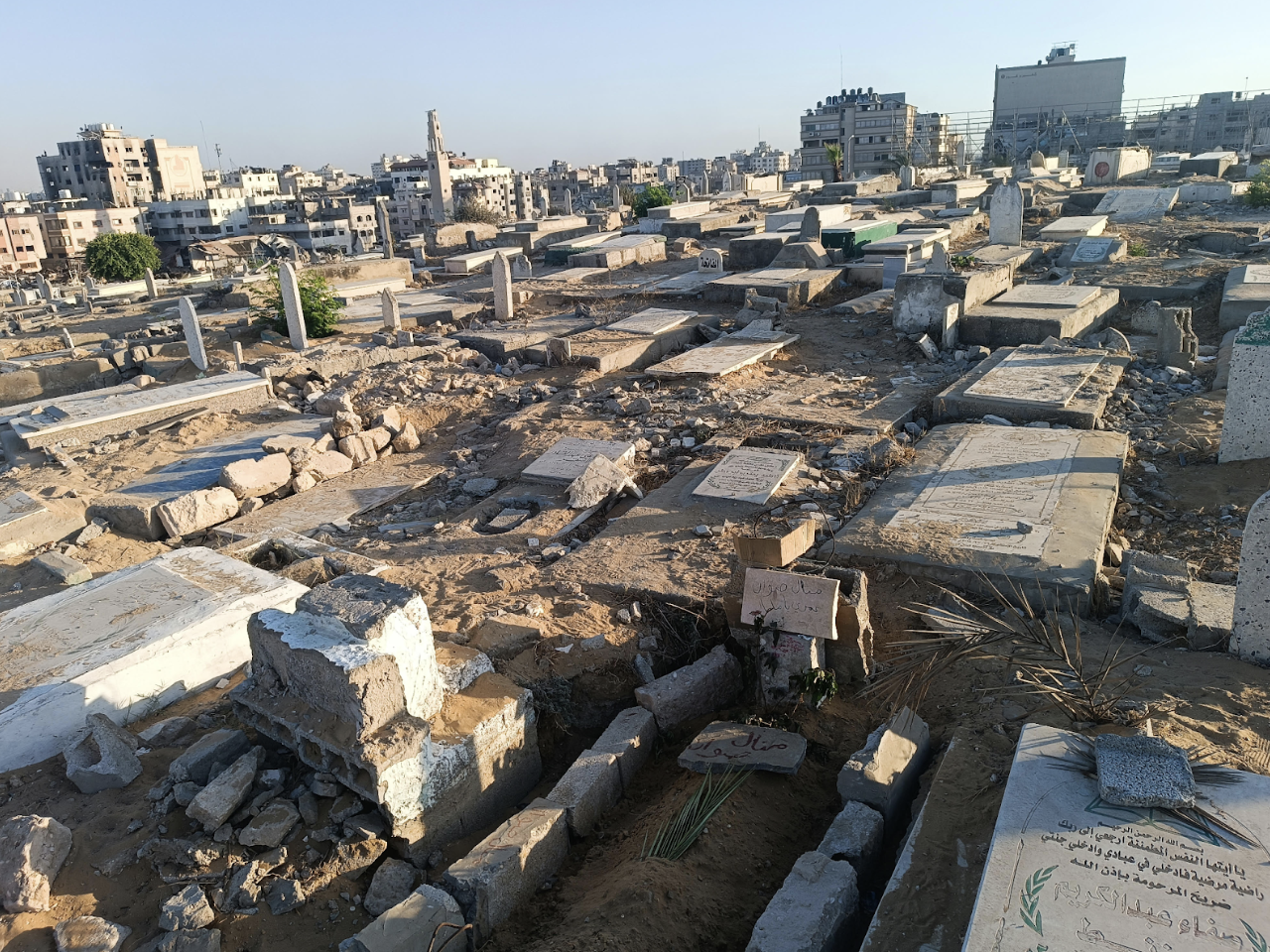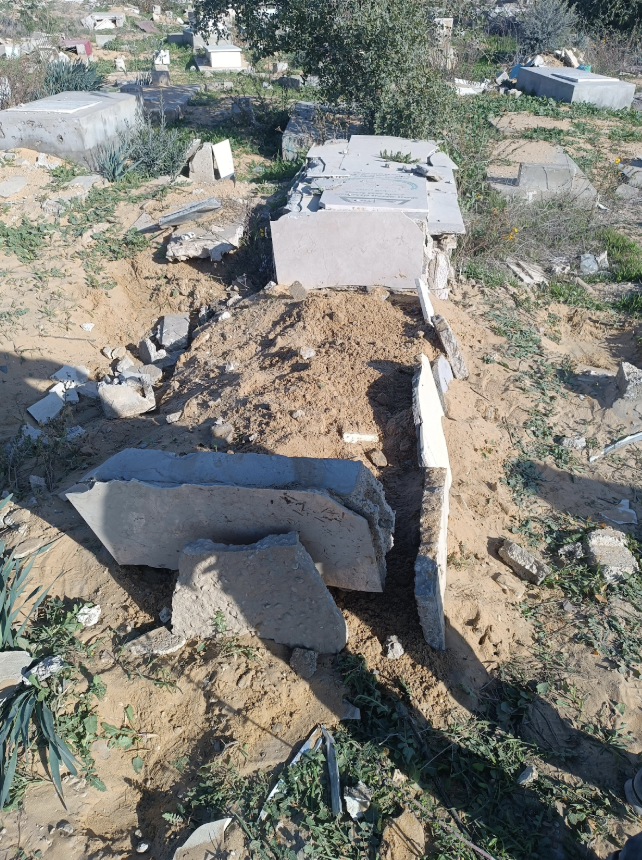My family was erased, but they will not be forgotten
Graves destroyed by Israeli bombardment in Sheikh Radwan cemetery. Photo credit: Abdullah Hany Daher
On October 9, 2023, the third day of the war, my cousin Sari left home to buy food in the middle of Jabalia Camp, as he always said no one should go to sleep hungry. Israel bombed him as he was walking with his father, who saw the shrapnel pierce his son’s skull. He saw his son’s life taken away from him, unable to do anything but bear witness. Sari was the first to be martyred.
On October 31, 2023, in the Abu Talat al-Tallouli massacre in al-Hawja neighborhood in northern Gaza, Sari’s wife, Zainab, and their infant son, were the next ones killed. The airstrike reportedly killed 50 people, with hundreds left wounded or missing beneath the rubble.
Among the dead was also my cousin Mohammad, 9, Sari’s brother, who went to call Zainab to warn her the family was planning to flee south. He stepped into the street for a better signal. His father told him it was dangerous. He insisted. Minutes later, the explosion came.
No final embrace. No crying. Just incineration. Sari’s home was destroyed, all of their possessions, wedding pictures and family portraits were turned to dust, along with the walls that held them. And just like that, Sari’s family was gone.
Since the genocide began in October 2023, Israel has wiped out more than 2,092 entire families in Gaza.
But it wasn’t just Sari’s family. On February 29, 2024, my maternal cousin Saher was killed in the Nabulsi massacre when Israeli soldiers opened fire on those gathered to collect aid at the Nabulsi roundabout, killing 112 Palestinians and wounding over 750. Saher carried no weapon. No phone. Just flour. That bag was the only thing he had to feel like a provider. It was the final thing he ever held.
The Nabulsi roundabout has become a death trap, much like Zikim Crossing, the main entry point for aid to northern Gaza, where Palestinians are slaughtered daily as they seek meager amounts of food.
Saher and I saw each other at weddings, funerals and other family gatherings. But during the war, he passed by every day. We spoke about the news, the rising number of martyrs, the flour lines, the sky. War forges new relationships, and then shatters them.
Sometimes I sit and imagine them still here. They return in my mind, then vanish with the next drone. I remember how Sari smiled not only with his lips but with his eyes. The nights we sat under trees, playing cards on the dirt. These were more than moments; they were proof of life.
I remember Sari telling me he would renovate his kitchen. He smiled and said, “life doesn’t wait.” Now, that kitchen is gone. I ask myself: is remembering them enough to justify my survival?
After they were killed, we buried Sari and his son in their separate graves.
Abdullah and his family went to the cemetery to check on the burial site and found that their graves had been bulldozed by the Israeli military. They gathered what was left of their bodies and buried them in a single grave, pictured here. January 10, 2025. Photo credit: Abdullah Hany Daher
On January 20, 2025, my family and I went to the cemetery to check on the graves of Sari and his family after we had been displaced during the Israeli invasion of Jabalia. I expected to see their graves intact. I thought we would find the soil we had buried them in, still holding them. Instead, we found the ground torn apart, the graves bulldozed by the Israeli military.
We gathered what was left of their bodies and buried them in a single grave. Even in death, they were denied rest. Even in burial, they were not safe.
Earlier this year, a CNN investigation found that the Israeli military has destroyed at least 16 cemeteries in Gaza. Under international humanitarian law and the 1949 Geneva Conventions, grave sites must be protected and respected in times of war.
Life without them will never be the same. Sari used to lock the door twice when he would leave the house; Mohammad would always laugh for no reason and Zainab would sing to the baby at night. Memory has become a battlefield, where we are struggling to preserve every image and every voice of those we’ve lost. It is a battle against silence and against the world’s indifference. It is resistance itself, a daily fight to keep their memory alive when everything else has been destroyed.
I am writing this not only to tell you Gaza is suffering. I write to give a second life to those that have been martyred.



